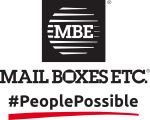










Companies to consider
-

Strike Back Self Defence Franchise
Strike Back Self Defence is the world’s largest all-female self-defence organisation, founded by Gulshen Bano with a...
View Profile -

Mail Boxes Etc.
A multi-functional retail and B2B operator offering post, parcel, print, and virtual office address services for a...
View Profile -

Super Star Sport Franchise
Super Star Sport is a children’s sports coaching company working with primary schools, nurseries and parents. The...
View Profile -

UK Business Mentoring Group
The UK Business Mentoring Group’s franchise model is designed for flexibility. You decide when and how you work....
View Profile -

Miss Millie’s Franchise
A well-established brand in the West Country, recently under new ownership, Miss Millie’s is definitely not an...
View Profile -

it’seeze Franchise
Sell the world’s fastest websites. Build recurring income. Run your own digital business
View Profile -

Kiddleydivey Franchise
Kiddleydivey is a unique franchise that brings music, fun, and care into a rewarding business opportunity. It delivers...
View Profile -

Walfinch
Provides live-in and visiting-hourly carers to a wide range of clients, including older people
View Profile -

Explorer Franchise by Hays Travel
provides franchisees with the chance to work in the travel industry on their own schedule
View Profile -

CareYourWay
Multi-award-winning family-run care franchise that specialises in person-centred, outstanding care at home
View Profile -

Chop & Wok
A wok-based restaurant and takeaway business that serves Pan-Asian fusion food
View Profile -

Numi Scan
Leading provider of ultrasound scans across the UK
View Profile -

The Spitting Pig Company Franchise
Become part of the UK’s leading hog roast brand
View Profile -

Spud Bros Express
Spud Bros Express is a fast-food franchise that offers its customers a modern twist on the classic baked potato. Since...
View Profile -

Local Eats Ireland
Run your own online food ordering service with minimal hassle yet with maximum return
View Profile -

Fat Phill’s
Since launching in 2019, Fat Phill’s has become best known for its smash burgers, loaded sandwiches, Philly...
View Profile -

12th Street Burgers
12th Street Burgers are an American-themed casual dining restaurant offering burgers, chicken, and shakes to customers...
View Profile -

URBAN Fresh Burgers & Fries
A BFA-accredited brand with a cult following in South Yorkshire, URBAN Fresh Burgers & Fries is all about fresh,...
View Profile -

Lucky Voice Franchise
Lucky Voice is a premium UK karaoke franchise, redefining social singing with private, themed rooms, curated playlists,...
View Profile -

Certax Accounting
Certax Accounting has offered accountancy and taxation services since 1999. It’s since grown into one of the...
View Profile -

Prestige Nursing & Care Franchise
Discover a rewarding franchise opportunity with Prestige Nursing & Care, a leader in specialist care services for...
View Profile -

Canopy Children’s Nurseries
Passionate about giving children the best possible beginnings
View Profile -

NLP4Kids Franchise
NLP4Kids is a pioneering children’s franchise specialising in NLP, coaching, and hypnotherapy techniques designed to...
View Profile -

What’s On In Franchise
The perfect online, home-based business, looking for single, master or corporate franchisees. A UK market that is worth...
View Profile -

Local Eats
Run your own online food ordering service with minimal hassle yet with maximum return
View Profile -

CyberGlobal
CyberGlobal is a certified cybersecurity franchise designed for individuals with a passion for sales, business...
View Profile -

People Building Franchise
People Building is a leading coaching franchise in the UK, specialising in NLP, hypnotherapy, and mindset training for...
View Profile -

Post & Packing
Post & Packing is your very own walk-in mailroom, for retail and business customers alike. As an independent postal...
View Profile -

Gourmet Sushi
Gourmet Sushi was founded in October 2016 in the heart of London by Nuriddin Shamsutdinov. With more than ten years of...
View Profile -

Wraps & Wings Franchise
Wraps & Wings franchisees benefit from being awarded several delivery-only brands covering breakfast, lunch and...
View Profile -

Chicken Cottage
The go-to quick service outlet for the world’s most flavoursome grilled and fried chicken and succulent sides
View Profile -

Puncturesafe
Install a British-made product and make a real difference for your customers while generating exceptional profits
View Profile -

Nurse Next Door Franchise
Delivers compassionate, personalised care to seniors across England
View Profile -

Fun Fest for Children
Offers a range of different childcare and children’s services franchise systems
View Profile -

Caremark Franchise
One of the UK’s largest and most established home care franchisors, helping thousands of people stay independent in...
View Profile -

Emma Franchise
A global leader in sleep technology, offering award-winning products in over 20 countries
View Profile -

Local Shops
Local Shops aims to target the world’s most renowned ecommerce platforms
View Profile -

Wok to Walk
Founded in 2004, Wok to Walk operates over 100 sites in 18 countries and can be found in iconic urban locations such as...
View Profile -

Leaflet Delivery UK Franchise
Leaflet Delivery UK is a franchise to become a Royal Mail authorised reseller of their door-to-door leaflet delivery...
View Profile -

Henry Sykes Auctions Franchise
Welcome to the Henry Sykes Property Franchise An exciting, scalable, and potentially multi-million-pound business...
View Profile -

The Travel Franchise
Start your own home-based travel agency
View Profile -

My Fit Pod Franchise
In the ever-evolving world of fitness and wellness, My Fit Pod offers an innovative and high-quality alternative to...
View Profile -

Let Correct Franchise
Let Correct is the UK’s first franchise brand entirely dedicated to the lettings market. While many others attempt to...
View Profile -

Aspray Limited
Aspray is an award-winning claims management provider that has developed into a successful franchise
View Profile -

World Options
Offers an easy to use, web-based courier and shipping service for businesses of all sizes
View Profile -

Muscleworks Gym
Muscleworks Gym is a premium fitness franchise that caters to serious bodybuilders and general fitness enthusiasts....
View Profile -

Auntie Anne’s
Auntie Anne’s is known for its freshly baked, soft, straight-out-of-the-oven pretzels in a variety of sweet and...
View Profile -

Black Rooster Franchise
Scotland’s fastest-growing Peri Peri brand
View Profile -

Countrywide Signs Franchise
An estate and letting agents board contractor, responsible for erecting and maintaining property signs
View Profile -

Paris Baguette
Provide fresh baked goods and coffee to the community
View Profile -

Game4Padel Franchise
Game4Padel is the UK’s leading developer and operator of padel clubs, driven by a mission to expand the world’s...
View Profile -

RE:SCULPT Franchise
RE:SCULPT is described as the UK’s fiercest reformer Pilates-inspired strength workout. At its heart is a unique...
View Profile -

PACK & SEND
National and international specialist packaging and delivery company
View Profile -

Yolé
Yolé is an award-winning dessert brand creating zero dairy, zero sugar-added ice cream and zero sugar-added frozen...
View Profile -

Kaspa’s Desserts
Delicious desserts in a fun and exciting environment
View Profile -

ActionCOACH UK
CompareTheFinancialMarkets.com UK Business Opportunity of The Year offers the chance to join the 2nd fastest growing...
View Profile -

Side Street Franchise
Born in lockdown, Side Street launched in 2020 to meet a rising demand for bold, flavour-packed food delivered fast....
View Profile -

The Seasons Art Class
Rewarding, Profitable, Part-Time Business
View Profile -

The Fat Pizza
Customers at The Fat Pizza believe it has the best delivered pizza around. Whilst consumers may order weekly from other...
View Profile -

Platinum Property Partners
The world’s first property investment franchise, based on a lucrative professional HMO model
View Profile -

No Letting Go
No Letting Go provides a variety of property management services, including landlord inventory, tenant inventory and...
View Profile
Enquire now from
You have pending
Here's just five reasons why you should join our FREE newsletter!
-
New articles added every week
-
Hand picked franchise opportunities just for you
-
First class help and advice for franchising and business
-
We have the industries best contributors on board
-
Inspiring and insightful franchise case studies
What Franchise Newsletter
Keep up to date with all the industry news